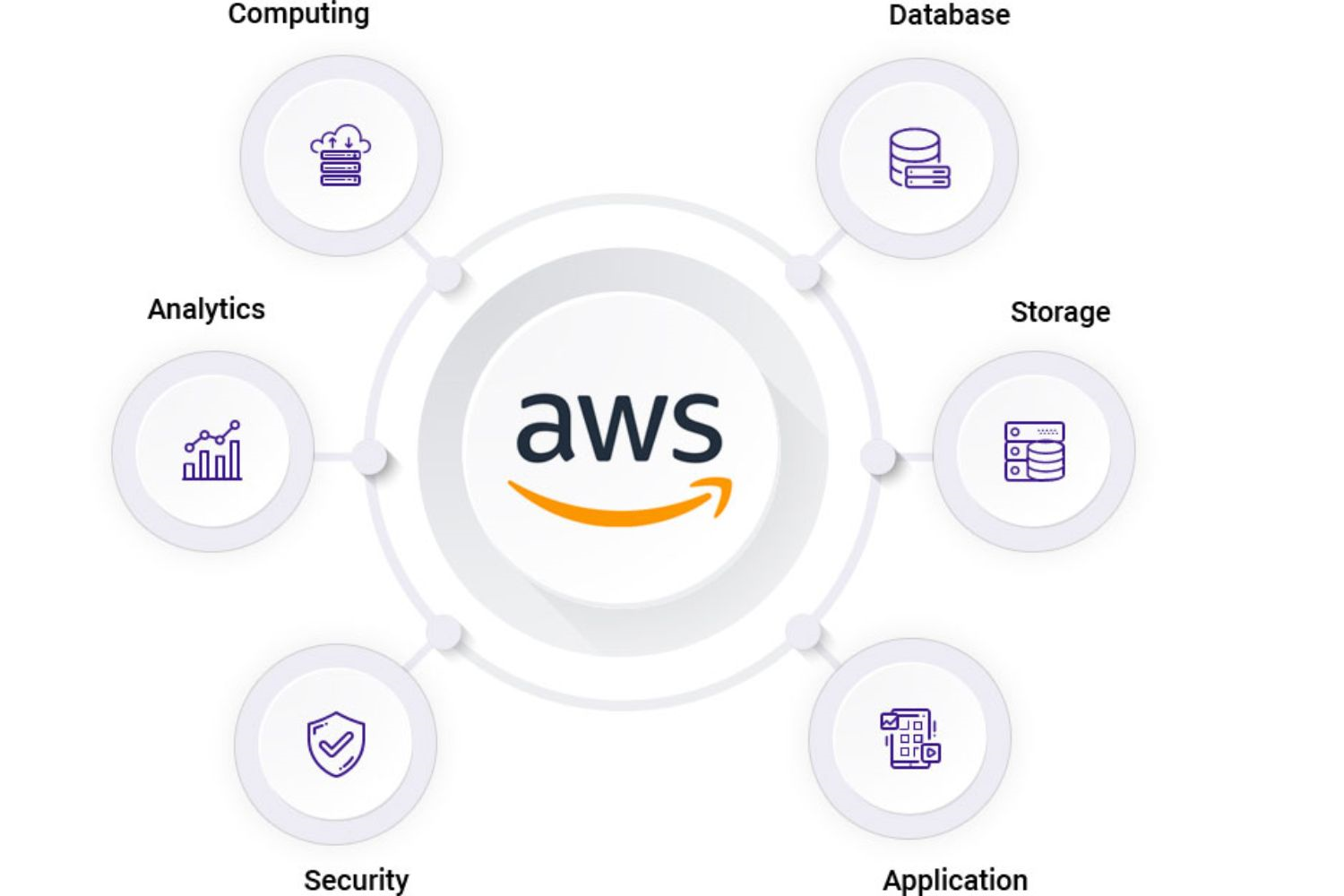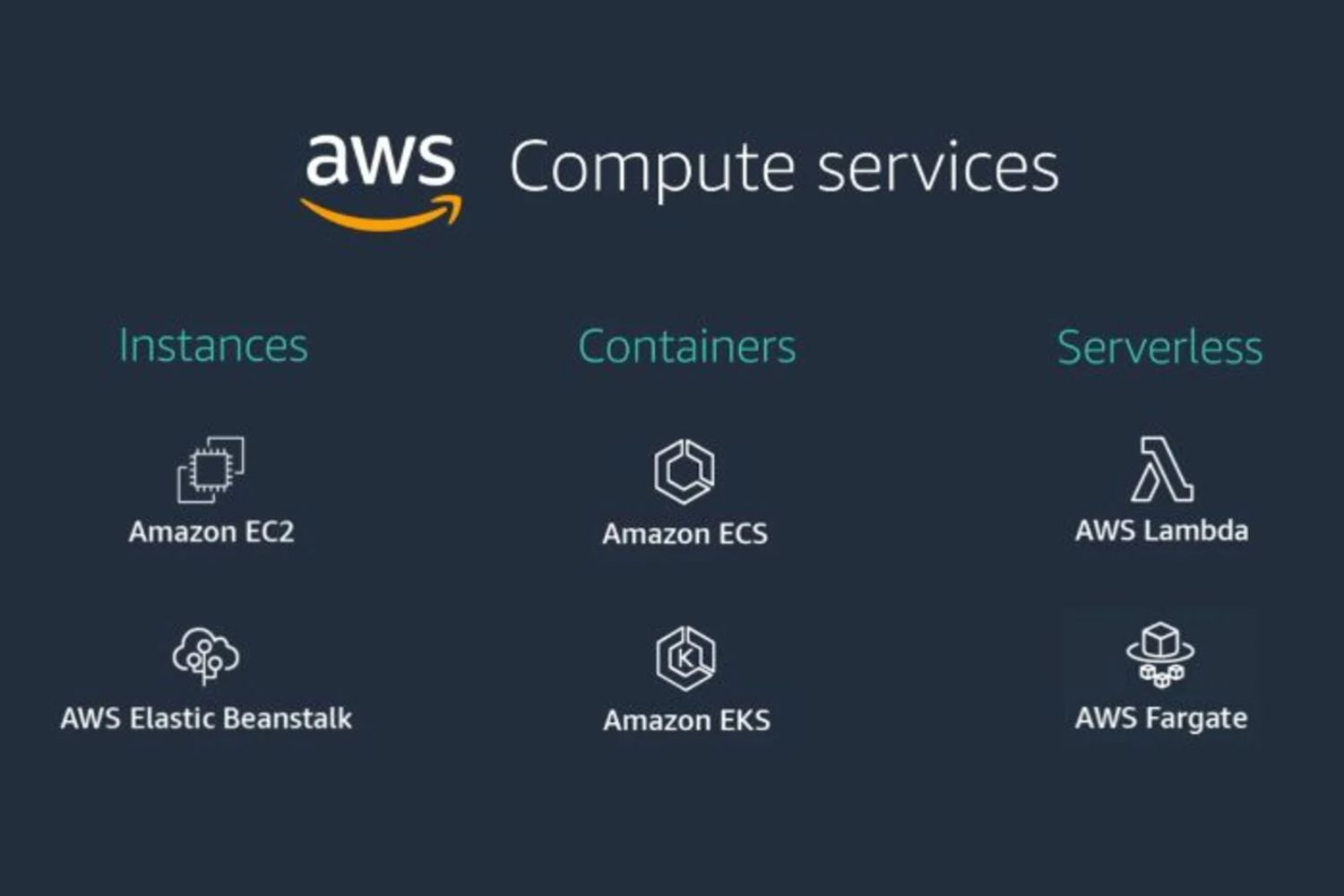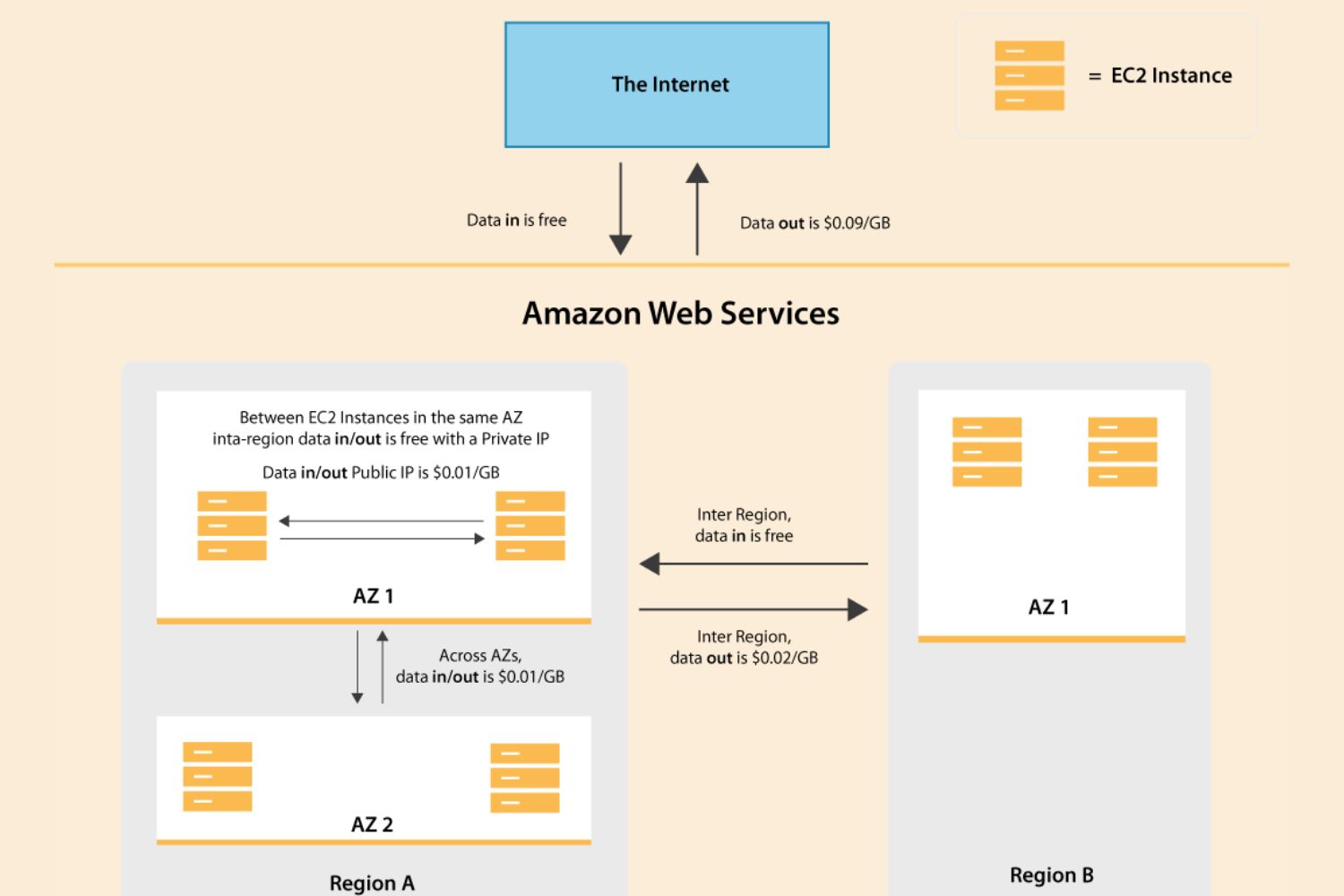
AWS Cloud Computing
AWS Cloud Computing:
Amazon Web Services (AWS) is the world’s most comprehensive and broadly adopted cloud, offering over 200 fully featured services from data centers globally.
AWS Cloud Computing or Amazon Web Services, is a comprehensive and dynamic cloud computing platform that offers a range of packaged software as a service (SaaS), platform-as-a-service (PaaS), and infrastructure-as-a-service (IaaS) options. An organization may benefit from AWS services by receiving tools like computing power, database storage, and content delivery services.
AWS Cloud Computing offers many different tools and solutions for enterprises and software developers that can be used in data centers in up to 190 countries. Groups such as government agencies, education institutions, non-profits and private organizations can use AWS services.

Fundamentals Of AWS Cloud Computing:
There are three fundamental drivers of cost with AWS: compute, storage, and outbound data transfer. These characteristics vary somewhat, depending on the AWS product and pricing model you choose.
Compute: It is the processing power required by applications and systems to process data and carry out computational tasks. The compute resources refer to the CPU, Storage, Memory, and the Network Bandwidth available to the machine where your VM is running.


Storage: You can store different types of data such as objects, files, and backups. The main benefit of storing data in the cloud is the convenience of increasing your storage capacity without maintaining and buying more local hard drives.
Outbound Data Transfer: It refers to data transfer that flows from Alibaba Cloud networks to the ports or virtual border routers (VBRs) that are associated with your data center. Simple Storage Services (S3), EBS, EFS and AWS CLI.

How Does AWS Cloud Computing Work?
AWS services come in different shapes, get to know how does AWS work. Before diving deep
into AWS, keep in mind it has physical locations to save the data of all regions. It offers cloud
capability by using its data centres established in all the concerned locations and works via a
fibre network. Amazon web services, being a widely adopted cloud platform can be used for any cloud work. The Same AWS can be used in all industries for their cloud needs. Small-sized, medium businesses, and large enterprises can easily use AWS to experiment, innovate faster, lower costs, and become more agile in terms of efficiency and development.
Amazon is responsible for the security and maintenance of the entire Cloud stack. The following above image says better at what does AWS provide:
Suppose you work on your own e-commerce store, and you are responsible for all data changes such as updates and security patches, scaling, backups, failovers, and more.
All you need to do that manually. But you can use Amazon Relational Database Service (Amazon RDS). Just in a few clicks, you can run the relational Database of your choice. With these RDS managed services, your all time-consuming tasks, such as provisioning, recovery, failure detection, patching, backups can be automated easily. That means you have more time to spend on what’s important.
Types:
Infrastructure as a Service (IaaS):
Infrastructure as a Service (IaaS) consists primarily of the basic cloud building blocks that provide access to a vast array of networking features, virtual and well-built hardware computing resources, security, data storage and backup space.
Platform as a Service (PaaS):
Platform as a Service (PaaS) provides the user with a platform equipped with top-of-the-range hardware and software tools hosted by the service provider. It allows developers to focus on their application development, deployment, and management.
Software as a Service (SaaS):
Software as a Service (SaaS) can be best illustrated by looking at email services like Gmail. Email users send and receive messages without a single thought about managing feature additions, servers, application management, or maintenance. They don’t have to consider which operating systems are needed to execute the email programs.

Job Roles:
There are so many different roles available in AWS Cloud Computing. Such as;
AWS Cloud Engineer
AWS Cloud Architect
AWS Cloud Developer
AWS Cloud Systems Administrator
AWS Cloud DevOps Engineer
AWS Cloud Security Engineer
AWS Cloud Network Engineer
AWS Cloud Data Architect
Back-end developer
Cloud engineer
Data engineer
Data scientist
Development operations engineer
Front-end developer
Full-stack developer
Java developer
NET developer
Senior Java developer
Senior software engineer
Software architect
Systems administrator
Software engineer

Expected Package In AWS Cloud Computing:
Salary is an essential part of any job but with a good salary, one has to have good experience too. Top level companies are in search of good AWS Cloud Engineer. So it ranges between 13LPA- 35LPA.
Technologies Used:
Database and Data Management
Amazon EC2
Simple Storage Services (S3), EBS, EFS and AWS CLI
Database Services
Elastic Load Balancing & Auto scaling
Route 53& Management Tools
Application Services, AWS Lambda &Elastic Beanstalk
Hosting a website on Amazon Web Services
Devops
Python
Unix
Developer Tools
A Mix of IaaS, PaaS, and SaaS
Big Data Management
Artificial Intelligence
Augmented Reality (AR) and Virtual Reality (VR)
Game Development
The Migration and Hybrid Cloud.
Course Highlights/ Details:
The AWS Cloud Computing course by Scodeen Global brings you numerous benefits and perks.
1. Suited for students, fresher’s, professionals, and corporate employees
2. Live online classes
3. 4-month program
4. Certificate of completion
5. Decision Oriented Program of Analysis
6. Live Classes by highly experienced faculties
7. Hands-on experience with real-life case studies.

Conclusion:
AWS is one of the most effective and path-breaking Cloud services. It has given a competitive edge to cloud computing technology by making it feasible and accessible to the entire world with minimum cost and world-class support. AWS has slowly become a preferred necessity for IT industries looking to host their data on the cloud. This emergence of AWS development services is the by-product of this. Surprisingly, there’s ample room left for AWS to play as the world has just entered into the ocean of cloud computing.
AWS cloud offers a massive range of services to assist its users in managing and automating their operational workloads. Increased productivity, consistent business growth, reduced overall cost, and higher security are some of the benefits that cloud integration initiates.

